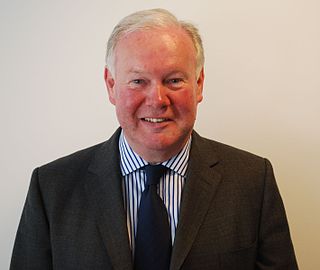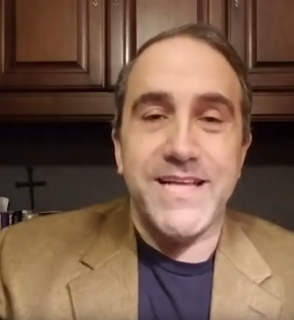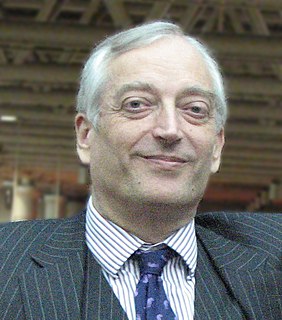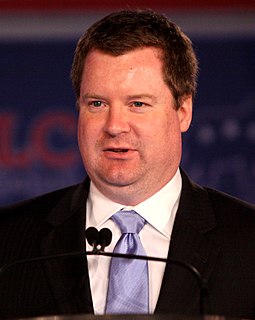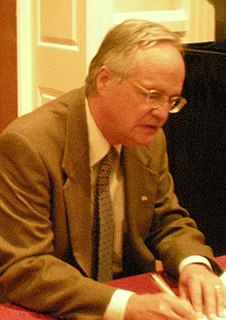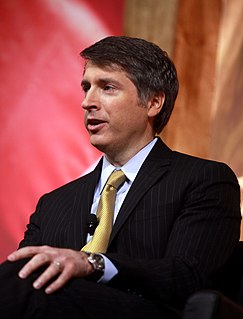Top 991 Carbon Dioxide Quotes & Sayings - Page 16
Explore popular Carbon Dioxide quotes.
Last updated on December 4, 2024.
I'm working with wind, solar, and biofuels companies as well as with organizations like ACORE [American Council On Renewable Energy], Growth Energy, and AREDAY to raise public awareness and seek practical technological solutions to reduce our reliance on fossilized carbon. My book Don't Wait for the Next War will be out in October, where I will offer my prescription for America's growth, responsible development, and security.
A carbon tax by itself would make driving more expensive, that's very true. But in exchange for that, there are going to be more jobs, more output, more employment, and more products available. So really, as long as you're going to collect the revenues you're going to collect, you're going to have to trade off one tax for the other.
Sure, you can say nuclear power is somewhat less carbon-intensive than burning fossil fuels for energy; beating your children to death with a club will prevent them from getting hit by a car. Ravaging the Earth by one irreparable means is not a sensible way to prevent it from being destroyed by another. There are alternatives. We should choose them and use them.
I am worried about climate change. In one respect, I may be more worried than other people. I am worried because I have very little confidence that we know what is causing it....One of my fears is that we could reduce carbon emissions by some drastic amount, only to discover that-oops-it turns out that climate change is being caused by something else.
Only dramatic cuts in the federal deficit, a rollback of regulations that cripple small and community banks, a cancellation of future tax increase plans, a big reduction in federal spending, repeal of Obamacare, freeing manufacturing from the prospect of carbon taxation and unleashing out domestic energy potential can solve our problems. But Obama is not about to undo his legacy of disaster for the American people.
We're putting more carbon into the atmosphere than the atmosphere can absorb. And everybody told us when we started, coz we knew nothing when we started - we still don't know very much - but everybody told us 'this is crazy, you don't use a scientific data point, it's a number, people don't respond to numbers'.
The world's forests need to be seen for what they are - giant global utilities, providing essential public services to humanity on a vast scale. They store carbon, which is lost to the atmosphere when they burn, increasing global warming. The life they support cleans the atmosphere of pollutants and feeds it with moisture. They act as a natural thermostat, helping to regulate our climate and sustain the lives of 1.4 billion of the poorest people on this Earth.
Trump has been very, very open and clear on what he's going to do. He's going to make the U.S. very competitive on taxes, corporate and personal. He's eliminating policy on carbon and the regulatory environment on shale and energy and pipeline development. These are all things that Canada has to do and we no longer have a competitive environment to do them in. It manifests itself in the slow grind of our economy.
For all that we have done, as a civilization, as individuals, the universe is not stable, and nor is any single thing within it. Stars consume themselves, the universe itself rushes apart, and we ourselves are composed of matter in constant flux. Colonies of cells in temporary alliance, replicating and decaying and housed within, an incandescent cloud of electrical impulse and precariously stacked carbon code memory. This is reality, this is self knowledge, and the perception of it will, of course, make you dizzy.
Four elements, Hydrogen, carbon, oxygen and nitrogen, also provide an example of the astonishing togetherness of our universe. They make up the "organic" molecules that constitute living organisms on a planet, and the nuclei of these same elements interact to generate the light of its star. Then the organisms on the planet come to depend wholly on that starlight, as they must if life is to persist. So it is that all life on the Earth runs on sunlight. [Referring to photosynthesis]
My study is NOT as a climatologist, but from a completely different perspective in
which I am an expert … For decades, as a professional experimental test engineer, I have analyzed experimental data and watched others massage and present data. I became a cynic; My conclusion - 'if someone is aggressively selling a technical product who's merits are dependent on complex experimental data, he is likely lying'. That is true whether the product is an airplane or a Carbon Credit.
Actually, climate change is really about the wellbeing of people. It is not a very vague concept or a vague problem that is out of our everyday lives. It is actually affecting our everyday lives, and this is the fundamental fact that everybody should keep in mind while working toward a low-carbon society.
If we took 75% of the world’s trashed rangeland, we could restore it from agriculture back to functioning prairies — with their animal cohorts — in under fifteen years. We could further sequester all of the carbon that has been released since the beginning of the industrial age. So I find that a hopeful thing because, frankly, we just have to get out of the way. Nature will do the work for us. This planet wants to be grassland and forest. It does not want to be an agricultural mono-crop.
This going on and on about how terrible a carbon-based economy is, these people are full of crap. They don't know what they're talking about. Their motives are not necessarily good just because they say they are being good. It's peace, love, and understanding. To which I can just say, "Shut up." Human liberty, rule of law, and free markets fix this stuff. It isn't necessary to go around being the Mia Farrow of the ecosphere.
We need to put a price on carbon, and that's what cap-and-trade does and that's also what a CO2 tax does. As long as our current valuation in the marketplace tells us every minute of every day that it's perfectly all right to dump 90 million tons of global warming into the thin atmosphere surrounding the planet every 24 hours as if that atmosphere is an open sewer, then the individual actions are not going to solve the problem.
We know that things like energy independence, getting off oil, getting out of the Middle East, and creating jobs and economic development in the new clean energy industries of the future are much higher priorities for most voters than capping carbon emissions or taxing dirty energy sources. So why not redefine our agenda as the solution to those problems?
When I'm talking about a developing world, I also look at clean-water access - women who are more vulnerable to sexual violence when they're fetching water. And talking about what we have going on here, with our carbon footprints and our emissions, is just as important to me as figuring out how to provide clean water to people who need it in regions around the world.
Embracing a low carbon economy will be as momentous as the previous industrial revolutions. As the shift from coal to oil did. And the shift from gas light to electric light. It has the potential to give us the competitive edge in the new global economy. The scale of the challenge is extraordinary. We will need to reinvent in the way we live our lives, the way our world works
The transition from coal, oil, and gas to wind, solar, and geothermal energy is well under way. In the old economy, energy was produced by burning something - oil, coal, or natural gas - leading to the carbon emissions that have come to define our economy. The new energy economy harnesses the energy in wind, the energy coming from the sun, and heat from within the earth itself.
Until we fully understand what turned two brothers who allegedly perpetrated the Boston Marathon bombings into murderers, it is hard to make any policy recommendation other than this: We need to redouble our efforts to make America stronger and healthier so it remains a vibrant counterexample to whatever bigoted ideology may have gripped these young men....And the best place to start is with a carbon tax.
In the visible world, the Milky Way is a tiny fragment; within this fragment, the solar system is an infinitesimal speck, and of this speck our planet is a microscopic dot. On this dot, tiny lumps of impure carbon and water, of complicated structure, with somewhat unusual physical and chemical properties, crawl about for a few years, until they are dissolved again into the elements of which they are compounded.
First, we must stop wasting energy. A quarter of the UK's carbon emissions come from the home. Our housing stock - the oldest in Europe - is costing us the earth... After transport, heating is the second biggest driver of energy demand in Britain. British Gas research suggests that householders who put in energy efficiency measures cut their gas consumption by 44%. Better insulated buildings will do much of the work for us.
The answer is to end our reliance on carbon-based fuels... If we succeed, we create booming new industries, wealth, clean secure energy and maybe we prevent the greatest disaster so far in human history, saving millions of lives while improving billions more. If we fail, basically it's business as usual while things slowly get worse all around us.
Coal is the moral choice, particularly for the developing world... The model for the world right now should be Australia. Australia gets it. Scientifically they get it, politically they get it and particularly when it comes to the United Nations, they get it. They are pulling out of this, they are repealing their carbon tax and Canada seems to be intrigued by what Australia is doing.
Shipping is the greenest method of transport. In terms of carbon emissions per ton per mile, it emits about a thousandth of aviation and about a tenth of trucking. But it's not benign, because there's so much of it. So shipping emissions are about three to four percent, almost the same as aviation's.
The only place Al Gore conserves energy these days is on the treadmill. I don't want to suggest that Al's getting big, but the last time I saw him on TV I thought, "That reminds me - we have to do something about saving the polar bears." Never mind his carbon footprint - have you seen the size of Al Gore's regular footprint lately? It's almost as deep as Janet Reno's.
You couldn't be here if stars hadn't exploded, because the elements - the carbon, nitrogen, oxygen, iron, all the things that matter for evolution - weren't created at the beginning of time. They were created in the nuclear furnaces of stars, and the only way they could get into your body is if the stars were kind enough to explode. So, forget Jesus. The stars died so that you could be here today.
We need a firm cap on carbon emissions from fossil fuels. No coal, oil, or gas could enter the economy until the buyer had a permit. All permits would be auctioned by the federal government, and the number of permits auctioned would be decreased by three percent per year. Permits could be traded, but they could not be created out of whole cloth by companies that plant forests or dump iron filings at sea.
Meatless Mondays is a dead-simple strategy. Anyone can do it, and it doesn’t require major sacrifice. Even if you eat a typical American diet replete with processed, junk and fast food the other six days of the week, going meatless on Mondays will still cut your carbon footprint, improve your health and reduce demand for factory-farm meat.
But to truly transform our economy, protect our security, and save our planet from the ravages of climate change, we need to ultimately make clean, renewable energy the profitable kind of energy. So I ask this Congress to send me legislation that places a market-based cap on carbon pollution and drives the production of more renewable energy in America.
Speaking for me, I think the odds of bankrupting Exxon are pretty small, but I think the odds of politically bankrupting them are higher. I think if we can use this as a vehicle to get out the analysis that these guys have 3-5 times as much carbon in the ground as the most conservative government thinks would be safe to burn, then that politically stigmatises them, makes them into the rogue industry that they are.
I just can't fathom tweeting, and I'd rather spend my time writing a book than a blog, but I rather grudgingly agreed to a Facebook page. I had a brief, intense romance with Facebook. It's weirdly addictive, but anything that time-sucking is a danger for a writer who writes as slowly as I do. Now I post only occasionally and nothing very confessional. I think I'm carbon dating myself as I speak.
An unfolding technology has increased our economic strength and added to the convenience of our lives. But that same technology-we know now-carries danger with it. From the great smoke stacks of industry and from the exhausts of motors and machines, 130 million tons of soot, carbon and grime settle over the people and shroud the Nation's cities each year. From towns, factories, and stockyards, wastes pollute our rivers and streams, endangering the waters we drink and use.
Customs, morals — is there a difference? Woman, do you realize what you are doing? Here, by the grace of God and an inside straight, we have a personality untouched by the psychotic taboos of our tribe — and you want to turn him into a carbon copy of every fourth-rate conformist in this frightened land! Why don't you go whole hog? Get him a brief case and make him carry it wherever he goes — make him feel shame if he doesn't have it.
Stars die and reborn […] They get so hot that the nuclei of the atoms fuse together deep within them to make the oxygen we breathe, the carbon in our muscles, the calcium in our bones, the iron in our blood. All was cooked in the fiery hearts of long vanished stars. … The cosmos is also within us. We're made of star stuff. We are a way for the cosmos to know itself.
...if we all turned down the thermostat in our house by just one degree, we would save over £650 million worth of energy and nearly nine million tonnes of carbon emissions every year. That would be the equivalent of taking three million cars off our roads...we can bring about a Green Consumer Revolution in this country to improve our lives, enrich our economy and protect our environment.
I speak without exaggeration when I say that I have constructed 3,000 different theories in connection with the electric light, each one of them reasonable and apparently likely to be true. Yet only in two cases did my experiments prove the truth of my theory. My chief difficulty was in constructing the carbon filament... Every quarter of the globe was ransacked by my agents, and all sorts of the queerest materials used, until finally the shred of bamboo, now utilized by us, was settled upon.
The truth about the climate crisis is still inconvenient to the large carbon polluters. And so they want to bob and weave and dodge the truth, and pretend like it's still a big controversy, and it's not. They want to pretend that this is up for debate. Like, whether or not the world is round is up for debate, or whether the moon landing really took place.
Science probes; it does not prove. Imagine Newton's reaction to an objector of his law of gravity who argued that he could not establish a universal law because he had not observed every falling apple, much less proved the law of gravity - there might, after all, be an apple that levitates! Why should a group of simple, stable compounds of carbon, hydrogen, oxygen and nitrogen struggle for billions of years to organize themselves into a professor of chemistry?
The press heralded this as a major accomplishment. The rush from the press as soon as it was announced suggested a high level of coordination. Like lemmings in a staged dive off a cliff, 'historic' became the media's rallying cry. There is nothing historic about the deal. In fact, news reports from November 2012 noted that China expected, in 2012, that its carbon emissions would begin to decline after 2030 because of factory upgrades, efficiencies, etc.
I kind of like carbon taxes because we already know how to apply them. We already have apparatus in place. When we talk about these other solutions - like a billion tons of iron filings in the ocean or putting sunshades between us and the sun - they're huge. We have no idea if they will work. We have no idea what their nasty consequences might be. And it's unlikely we can do them anyway.
Recycling, cutting back on driving, and changing out old light bulbs for energy-efficient ones might save half a ton of carbon a year. A household going car-free, flight-free, and vegan - changes impractical, if not outright impossible, for many families to make - might reduce emissions by four tons a year.
I wish we could grow up about it, I'm sure we are contributing to global warming, and we must do all we can to reduce that, but our climate has always changed. The Romans had vineyards in Yorkshire. We're all on this bandwagon of 'Ban the 4x4 in Fulham'. Why didn't we have global warming during the Industrial Revolution? In those days you couldn't have seen across the street for all the carbon emissions and the crap coming out of the chimneys.
Brothers and Sisters: Our ancient homeland is spotted today with an array of chemical dumps. Along the Niagara River, dioxin, a particularly deadly substance, threatens the remaining life there and in the waters which flow from there. Forestry departments spray the surviving forests with powerful insecticides to encourage tourism by people seeking a few days or weeks away from the cities where the air hangs heavy with sulphur and carbon oxides.
The sooner we switch away from carbon-based fuel and start relying on renewable energy sources available in the United States, the sooner we will grow our economy by creating the millions of new jobs that will come from retrofitting homes and businesses, building smart grids, renewable energy systems and planting trees and all the rest. We need to create a lot of jobs that can't be outsourced.
All the carbon copies, the stuff that the industry puts together, it's not selling if you pay attention and look at the charts. The stuff that they put together, these hits that just go out, it doesn't sell. It doesn't have a core fan base of fans that dedicatedly watch their life. It's just a song, another song, another hit song, a one-hit wonder. It doesn't sell. It doesn't last.
There's no huge mystery. If you dig up huge amounts of carbon, huge amounts of ancient biology, hundreds of millions of year's worth of ancient biology, and flush it into the atmosphere in a matter of decades, then it stands to reason that we're going to have enormous effects, and now we can see those effects all around us.
My wife and I have purchased two hybrids. We bought a 3 kw photovoltaic unit. We recycle and offset our carbon emissions on the Internet. We turn things off. But we also spend two nice salaries every year, and here's the dirty little secret - our environmental footprint is HUGE, I'm sure. We've all got to do what we can in our individual lives, but we've also got to drive the systemic changes that will make the big differences.
All the big ideas for getting us onto a lower carbon trajectory involve a lot of people doing a lot of work, and that's been missing from the conversation. This is a great time to go to the next step and ask, well, who's going to do the work? Who's going to invest in the new technologies? What are ways to get communities wealth, improved health, and expanded job opportunities out of this improved transition?
The question is: do we pay a little bit more now? Or do we pay a whole lot later? For the equivalent of a postage stamp a day for each American, we can put a price on carbon today that will send a signal to private capital to invest in the clean technologies of tomorrow. Taking a vast portfolio of new energy solutions to scale will ultimately drive down costs through competition.
The Environmental Protection Agency's first-ever limits on carbon pollution from power plants will create clean- energy jobs, improve public health, bring greater reliability to our electric power grid, bolster our national security, demonstrate the United States' resolve to combat climate change and maybe even reduce our utility bills.
If Africa is left behind, she is going to continue pumping greenhouse gases into the atmosphere, especially carbon. She's going to continue logging the forests, she's going to continue burning charcoal, she is going to continue practicing agricultural activities that destroy the environment, and sooner or later Africa's problem will become a global problem.
Our climate is changing. The Earth's climate has, in fact, warmed by 1.1 to 1.6 degrees Fahrenheit since the industrial revolution. People look at this and say: Oh, that is not very much. In fact, it is very much, and it changes the dynamic. It impacts species. It kills some. It diminishes the carbon sink of the ocean. It does a number of things.
I like my house to be unique to me. Sure, I've bought plenty of things out of a catalog, but the way I put them together in my home is special. You might have bought your sofa at a major home decorating store, but the rug you found at the flea market is so unique, it takes your room from 'carbon copy' to 'simply yours' in no time.
Water: 35 Liters. Carbon: 20 Kg. Ammonia: 4 Liters. Lime: 1.5 Kg. Phosphorus: 800 g. Salt: 250 g. Saltpeter: 100g. Sulfur: 80g. Fluorine: 7.5 g. Iron: 5 g. Silicon: 3 g. And 15 other elements in small quantities. That's the total chemical makeup of the average adult body. For that matter, the elements found in a human being is all junk that you can buy in any market with a child's allowance. Humans are pretty cheaply made.
A cap and trade bill will likely increase the costs of electricity. . . . These costs will be passed on to the consumers. But the issue is, how does it actually...how do we interact in terms with the rest of the world? If other countries don't impose a cost on carbon, then we would be at a disadvantage. . . . We should look at considering duties that would offset that cost.
The horn of dilemma of energy politics is what really drives concern about this energy in this country, at the gut level for most people, is high gas prices. And if you really want to fight global warming and try to reduce our carbon emissions, the cleanest, easiest, most rational way to do it would to make the price of gas even higher through very stiff gas prices.

















